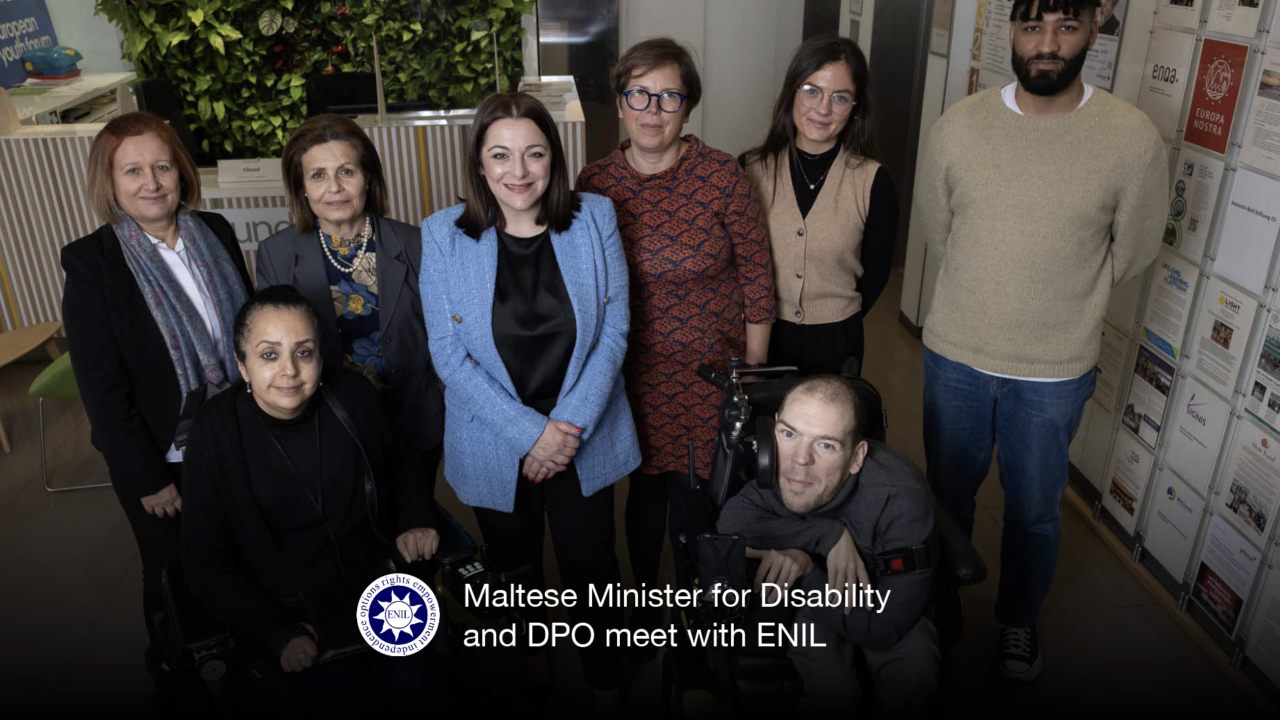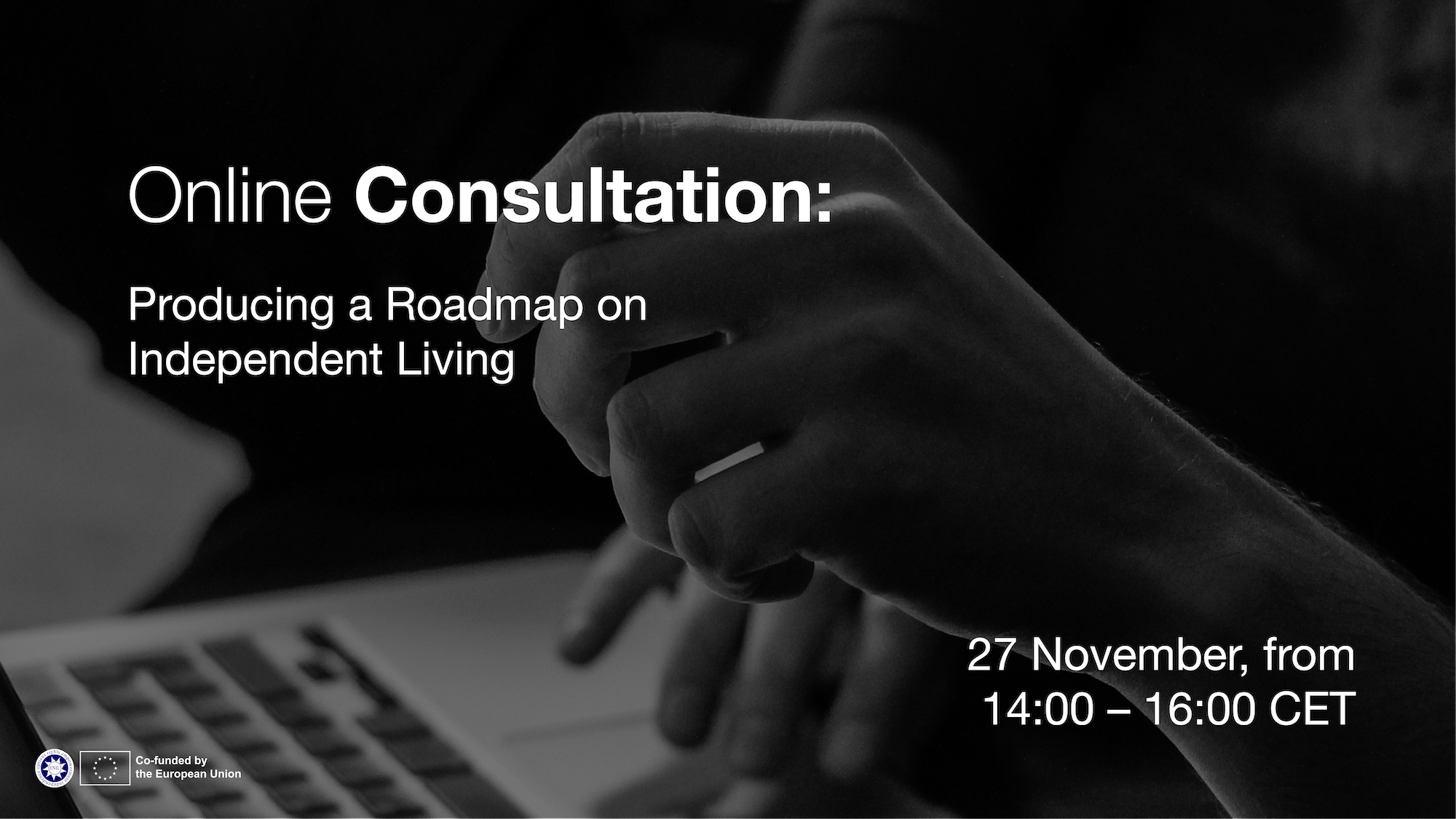On 24th March, at our office in Brussels, we met with Hon. Julia Farrugia Portelli, the Minister for Inclusion, Voluntary Organisations, and Consumer Rights and Ms. Nancy Caruana, the Permanent Secretary. They were was accompanied by Mr. Oliver Sciclula, the CEO of Agenzija Sapport and Ms. Marthese Mugliette, the President of the Malta Federation of Organisations of Persons with Disabilities (MFOPD).
We started the meeting by hearing about what Malta is doing when it comes to deinstitutionalisation, and the role that personal assistance is playing in the process. We were pleased to hear there are concrete plans in place to enable those residing in smaller institutions to move out by, among other, having access to the PA system. We then addressed various questions on personal assistance, such as how children and their families can access PA, how often assessments should be carried out, how to make sure that even people with very complex needs for support can benefit from PA. We also addressed the tasks PA can/should do, how to avoid complicated administrative procedures related to employing assistants, the importance of promoting PA as a job, peer support and the cost of disability; for example, how to make sure that disabled people do not have to pay for their PA when going to the cinema, a museum, or when using public transport. We provided the Maltese delegation with various examples of how things work in other countries and the challenges disabled people often face when it comes to using personal assistance.
Interview with Hon. Julia Farrugia Portelli:
- What is your main mission regarding disability rights and independent living in Malta?
The State signed and ratified the UNCPRD in 2012 and from that time it had introduced a National Policy for the Rights of Persons with Disabilities and a National Strategy for the Rights of Persons with Disabilities 2021-2030. The Maltese Parliament also passed a bill into the Maltese legislation to see the UNCRPD become an Act of Parliament. A number of other pieces of legislation had been enacted, such as the Maltese Sign Language Act and the Autism Empowerment Act, which aims to empower persons with disabilities to lead an independent life. The Department for Disability Issues was also created to coordinate the implementation of the National Strategy, and therefore the implementation of the UNCPRD. The Commission for the Rights of Persons with Disability – CRPD (the regulator in Malta) was also restructured to be more autonomous and also to create redress panels which decide on reports of acts of discrimination on the basis of disability. Currently, we are planning to create a Deinstitutionalization Strategy which will come together with the Personal Assistant (personal budget) reform. The National Agency in charge of disability already started working on deinstitutionalisation of individuals individuals who currently reside in the small residences run by the Agency (Agenzija Sapport). - Why was it important to meet with ENIL?
Malta feels that it is important to consult both local and foreign civil society organizations. Thus, we felt the importance of meeting and seeking guidance from ENIL on how to best implement a Personal Assistance scheme which is in line with the UNCPRD Article 19. We feel that ENIL can give the best advice because of its experience and the fact that it is run by people with disabilties themselves. - What is your perspective on Personal and Deinstitutionalization?
We feel that it is the way forward for the disability sector in general. Through culture change, we should implement proper personal assistant schemes which would eventually help every country to eradicate intitutionalization and make sure that persons with disabilities will become effective active citizens.
Hon. Julia Farrugia Portelli, Minister for Inclusion, Voluntary Organisations, and Consumer Rights
“We would like to thank ENIL for their continuous support through this collaboration. Agenzija Sapport managed to better understand the ways and means that the current PA scheme should be reformed. Your valuable insight will greatly contribute to the development of our reform.”



